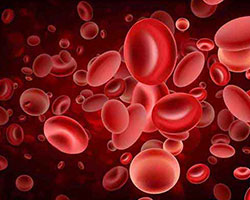Fibrinogen deficiency, also known as factor I deficiency, is an inherited bleeding disorder which prevent blood clot formation in the human body. Hypofibrinogenemia, afibrinogenemia, dysfibrinogenemia and hypodysfibrinogenemia are most commonly occurring fibrinogen deficiency disorders. The symptoms of this deficiency vary based on the type of disorder. However, some most common symptoms reported among various types of fibrinogen deficiency disorders are nose bleeding, bruising, heavy menstrual bleeding, muscle bleeding, abnormal bleeding after circumcision, pregnancy complications; abnormal bleeding during or after injury, surgery, and childbirth; and mouth bleeding. The standard treatments available for these disorders are fibrinogen concentrates, cryoprecipitate and fresh frozen plasma (FFP) prepared from human plasma. Some of the major companies involved in development of therapeutic agents for the management of fibrinogen deficiency include Biotest AG, Green Cross Corporation, LFB SA and others. For instance, Biotest AG is in the process of developing BT-524, a human fibrinogen concentrate purified from human plasma, for the treatment of fibrinogen deficiency disorders.
-
The report provides a comprehensive understanding of the pipeline activities covering all drug candidates under various stages of development, with the detailed analysis of pipeline and clinical trials.
-
Pipeline analysis of drugs by phases includes product description and development activities including information about clinical results, designations, collaborations, licensing, grants, technology, and others.
